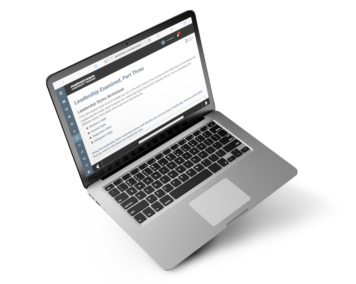27
Jan
5 reasons leadership training should be for all employees
Regardless of the myth that "leaders are born and not created," skills can be taught and improved through leadership training. Developi...
It is impossible to be part of an organization today and not attend meetings. Staff meetings, project meetings, and planning and coordinating meetings all take time.
There has been a growing realization that we have to pay attention to the process elements of meetings if we want them to be effective. With its focus on asking rather than telling, and listening to build consensus, facilitation is the new leadership ideal, the core competency everybody needs. Managers and supervisors are often asked to facilitate rather than instruct or manage their meetings and training sessions.
How can you facilitate, rather than control, group decision-making and team interaction? With no formal training, people may find it difficult to make the transition from instructors or managers to facilitators.


At the end of this workshop, participants will be able to:
To begin, participants will explore the differences between facilitation, training, and chairing.
Next, participants will explore key facilitation skills, levels of facilitation, facilitation language, and things to do to ensure facilitation success.
In this session, participants will discuss ground rules, also known as norms. They will also work together to generate a list of ground rules for the remainder of the workshop.
While facilitators are responsible for the process, it is participants who are responsible for and manage the content. This session will explore the differences between these two aspects of a meeting.
Next, participants will learn about divergent thinking and convergent thinking, as well as the grey area (also known as the Groan Zone) between the two.
In this session, participants will learn how to handle controversial issues in a neutral and professional way.
This session will explore the building blocks of good communication: active listening, questioning skills, probing techniques, and managing your body language.
For most people, it seems to be instinctive to try to find something in common with their fellow humans. In this session, we will explore the importance of listening for common ground in facilitation.
This session will begin with a lecture on 16 important facilitation techniques. Then, participants will divide into groups to prepare and present a short demonstration on a chosen technique.
Part of your role as a facilitator includes providing and accepting feedback. This session will give participants some tips on giving and receiving feedback. It will conclude with an exercise that will help them practice this skill.
Next, participants will learn some ways to manage divergent perspectives. Then, they will apply their knowledge to a case study.
In this session, participants will learn about some communication elements that are unique to facilitation. Then, they will apply their knowledge to an interactive case study.
Part of facilitating meetings is developing an agenda. This session will outline a brief, easy process to help facilitators build a good agenda.
In this session, participants will complete a mix and match exercise to identify possible difficult behaviors and ways to manage them. Then, participants will learn about and practice twelve easy, effective ways to intervene in a group discussion.
Getting a group to come to an agreement is not much good if that agreement is not supported by true consensus. This session will give participants ways to build sustainable agreements.
Next, participants will learn about Tuckman and Jensen’s Forming, Storming, Norming, Performing, and Adjourning model, which outlines the stages of team development. Participants will also identify some ways to help groups through each stage.
The final session will introduce participants to two decision-making tools: SWOT analysis and force field analysis.